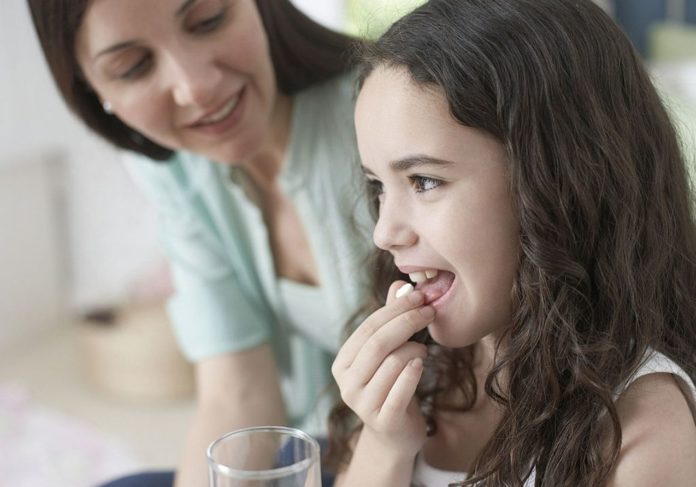Children weighing 20kg or between 3 to 18 can safely take this baby pill.
Taking one antiretroviral drug a day, which costs less than other treatments but is also easier for youngs to take, is more effective at stopping HIV than other treatments, say researchers at the University College London (UCL).
Dolutegravir-based regimens, which are currently extensively used to treat adults, were found to reduce the likelihood of treatment failure among young people aged 3 to 18 by about 40 percent compared to normal therapies, according to a study published in The New England Journal of Medicine.
The findings came from the ODYSSEY trial, which included over 700 children from 29 clinical centers across Africa, Europe, and Asia who were randomly assigned to receive dolutegravir or standard anti-HIV medications and were monitored for at least two years.
“Our findings provide strong evidence for the global roll-out of dolutegravir for children with HIV,” stated Professor Diana Gibb (MRC Clinical Trials Unit at UCL), principle investigator of the ODYSSEY trial and one of the senior authors of the paper.
“Medical treatments for children often lag woefully behind those of adults because of the separate formulations and studies that are needed. With the evidence from ODYSSEY which used simplified dosing, this treatment gap has been reduced and we hope that countries can quickly scale up children’s access to treatment globally.”
“About 1.8 million children live with HIV but they have had limited treatment options, with medicines that taste unpalatable, that need to be taken twice a day, or that come in large pills that are difficult to swallow,” added lead author Dr Anna Turkova (MRC Clinical Trials Unit at UCL).
“Dolutegravir is given in small tablets usually once a day and the baby pills can be dispersed in water, meaning it’s a lot easier for young children to take. This is important in encouraging uptake of the treatment and adherence to it over many years. Sadly, only about half of children living with HIV are currently receiving treatment, and those who are not treated face high risks of impaired immunity and worsening health.”
Over the course of two years, 14 percent of children getting dolutegravir had treatment failure, compared to 22 percent of children receiving standard treatment, according to the study.
Treatment failure was defined as the virus becoming detectable in the blood – indicating that it had not been completely suppressed – or the kid displaying symptoms of HIV-related illness.
Such a failure could occur as a result of the drug not being taken or the drug failing to work.
A strong genetic barrier to resistance has been demonstrated in adults, which means that viruses are less likely to develop resistance to dolutegravir over time. This was confirmed in the ODYSSEY study, with dolutegravir-based treatment causing significantly less resistance in children and adolescents.
Earlier studies have linked dolutegravir to weight gain in adults, but the latest findings are reassuring for children, with those taking dolutegravir gaining 1kg more and growing 1cm taller over two years, both indicating better growth rather than excessive weight gain. Children in the dolutegravir group had superior lipid profiles, indicating a lower long-term risk of cardiovascular disease.
The children in the main study all weighed more than 14 kg and were mostly six years old or older. The therapy’s efficacy was also investigated in the second group of small children and babies weighing less than 14 kilograms; the results have yet to be released.
Uganda, Zimbabwe, South Africa, Thailand, the United Kingdom, Spain, Portugal, and Germany were among the trial’s participants. The majority of the participants were from Sub-Saharan Africa, which is home to the majority of HIV-positive kids.
Previous findings from the ODYSSEY trial indicated that children weighing 20kg or more may safely receive adult-strength dolutegravir tablets, informing WHO dose advice and paving the way for new drug licenses in the United States and Europe in 2020.
“Simplifying the dosing is crucial,” added Dr Cissy Kityo of Uganda’s Joint Clinical Research Centre, which enrolls the majority of youngsters in ODYSSEY, “Older children being able to take the same tablets as adults immediately opens access to dolutegravir for the majority of children living with HIV. It greatly simplifies procurement for national health systems in low and middle income countries and lowers costs.”
Dolutegravir is an integrase inhibitor, which means it suppresses HIV by blocking the enzyme integrase, which the virus needs to replicate.
Image Credit: Getty
You were reading: Once-a-day baby pill reduces HIV in children by 40%, Study shows
